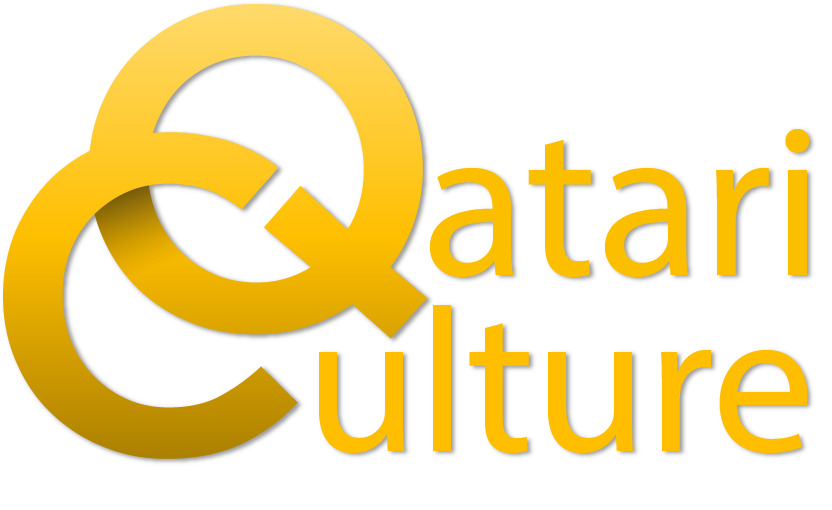Дом – Катарские традиции и социальные нормы
Катар, Небольшая, но быстро развивающаяся нация на Аравийском полуострове, богат традициями и социальными нормами, которые отражают его глубоко укоренившееся исламское наследие и корни бедуинов. Поскольку страна модернизировала и открылась для глобальных влияний, Эти традиции развивались, Но они продолжают играть значительную роль в формировании повседневной жизни и взаимодействий с катарским народом. В этой статье рассматриваются ключевые аспекты традиций катарских традиций и социальных норм, Сосредоточение как на исторических практиках, так и на современном поведении.
Культурное наследие
В основе культуры катарца лежит прочная связь с ее наследием бедуина, который подчеркивает гостеприимство, Семейные ценности, и уважение к традиции. Исторически, Катарское общество было в значительной степени кочевым, С семьями переезжают через пустыню в поисках ресурсов. Этот образ жизни способствовал сильному чувству общности, с людьми полагаются друг на друга для поддержки и выживания.
Сегодня, Эти значения остаются центральными для идентичности катар. Семейные связи имеют первостепенное значение, и собрания с расширенными членами семьи распространены. Будь то в особых случаях или повседневной жизни, Важность семейных отношений очевидна в том, как катарцы расставляют приоритеты в семье времени, Часто собираться для еды, Празднования, и религиозные обряды.
Гостеприимство
Гостеприимство - краеугольный камень катарской культуры, глубоко укоренился в социальных взаимодействиях. Посетители катари -дома могут ожидать теплого желанного приветствия, с хозяевами, которые идут на многое, чтобы их гости чувствовали себя комфортно и цену. Предложение Гахва (Арабский кофе) и даты по прибытии - это традиционный жест гостеприимства, символизируя доброжелательность и щедрость.
В социальных условиях, Гостям часто рекомендуется есть и пить до его сердца, как отказ гостеприимства может быть воспринят как невероятный. Хозяева гордятся своей способностью обеспечивать своих гостей, и они часто настаивают на том, чтобы подавать еду и напитки несколько раз на протяжении всего собрания. Такая практика отражает глубокое убеждение, что гостеприимство является отражением чести и достоинства.
Дресс -код
Катарские традиции уделяют упор на скромность и уместность в одежде. Традиционная одежда обычно носит, особенно во время официальных событий и религиозных случаев. Мужчины обычно носят Тоби, длинный белый халат, Пока женщины часто носят Абая, длинный черный плащ, над их одеждой. Ожидается, что оба пола будут скромно одеваться на публику, отражение культурных ценностей и религиозных убеждений.
В более случайных настройках, Одежда в западном стиле принимается, при условии, что он остается скромным. Женщины должны избегать одежды, которая чрезмерно раскрывающая или плотная, В то время как мужчины должны одеваться таким образом, чтобы уважать местные обычаи. При посещении религиозных мест, такие как мечети, Применяются более строгие дресс -коды, Как с мужчинами, так и с женщинами, необходимыми для покрытия рук и ног, и женщинам также нужно носить платок.
Приветствия и социальные взаимодействия
Приветствия в катарской культуре являются формальными и уважительными, часто сопровождается физическими жестами, такими как рукопожатия или кивки. Наиболее распространенное приветствие - это “Как-Привет Alaykum” (Мир будет на вас), на что соответствующий ответ “Из Alaykum as-салам.” При поздравительном приветствии кого -то в первый раз, Важно поддерживать зрительный контакт и предложить подлинную улыбку, Как эти жесты означают уважение и дружелюбие.
В социальных условиях, Разговор часто вращается вокруг семьи, здоровье, и личное благополучие. Обычно узнать о семье человека и участвовать в небольших разговорах, прежде чем углубить более существенные дискуссии. Эта практика отражает важность отношений в обществе Катара.
Важно признать значимость гендерной динамики во время социальных взаимодействий. В то время как мужчины и женщины взаимодействуют в различных контекстах, Есть культурные нормы, связанные с физическим контактом. Мужчины обычно не пожимают руками женщинам, если женщина сначала протянет руку. В настройках смешанного пола, Поддерживать уважительное расстояние является обычным, особенно во время начальных встреч.
Празднования и фестивали
Катари празднуют многочисленные традиционные фестивали и мероприятия в течение года, многие из которых погружены в культурное и религиозное значение. Ид аль-Фитр и Ид аль-Эдха являются одними из самых важных исламских праздников, отмечать конец Рамадана и отмечать готовность Ибрагима (Авраам) пожертвовать своим сыном в послушании Богу, соответственно.
Во время этих фестивалей, Семьи собираются вместе, чтобы отпраздновать с тщательно продуманной едой, Подарочные обмены, и общественные собрания. Обычно посещать друзей и родственников, Обмен едой и добрыми пожеланиями. Особое внимание уделяется детям, кто часто получает подарки и угощения во время этих праздников.
Еще один значительный случай - это Национальный день Катара, Праздновается 18 декабря каждого года. Этот день отмечает объединение и независимость страны, и это отмечено парадами, фейерверк, и культурные события. Катари гордится своей национальной идентичностью, и празднования дают гражданам возможность выразить свою любовь к своей стране и ее наследию.
Религиозное соблюдение
Ислам является основой катарской культуры, влияя на повседневную жизнь, социальные нормы, и личное поведение. Пять ежедневных молитвы являются неотъемлемой частью жизни Катара, и многие предприятия закрываются во времена молитвы, чтобы сотрудники могли соблюдать свои религиозные обязанности. Во время священного месяца Рамадан, Пост с рассвета, пока не практикуется закат мусульманами, с особым акцентом на духовное размышление, благотворительность, и общинная связь.
Во время Рамадана, общественные собрания и ифтар (вечерняя еда, чтобы сломать пост) стать центральным в общественной жизни. Семьи и друзья часто собираются вместе, чтобы поделиться едой, Содействие чувству единства и связи. Приготовлены традиционные блюда, и многие люди также участвуют в благотворительных мероприятиях, чтобы помочь нуждающимся.
Социальные нормы и ожидания
Социальные нормы в Катаре подчеркивают уважение, вежливость, и рассмотрение для других. В общественных местах, Люди обычно тепло приветствуют друг друга, и показывать доброту и терпение высоко ценятся. Неуважительное поведение, такие как повышение голоса или спорить на публике, Недостаточно.
Катари также ценят конфиденциальность и усмотрение, особенно в отношении личных вопросов. Дискуссии о доходе, Семейные проблемы, или к личным отношениям следует подходить с осторожностью, Поскольку эти темы могут считаться навязчивыми. Поддержание чувства приличия и уважения к личным границам имеет важное значение для социальных взаимодействий.
В бизнес -контекстах, Часто наблюдаются формальности, С акцентом на иерархию и названия. Заниматься в небольших разговорах, прежде чем углубляться в деловые дискуссии, является обычным, Поскольку это помогает установить взаимопонимание и доверие. Катари предпочитает встречи лицом к лицу по электронной почте или по телефону, Отражая важность личных отношений в деловых отношениях.
Гендерные роли и семейная жизнь
Традиционные гендерные роли остаются влиятельными в Катарском обществе, С мужчинами часто считаются основными кормильцами и женщинами, в основном ответственными за управление домохозяйством и уходом за детьми. Однако, Динамика постепенно меняется, С растущим числом женщин, преследующих высшее образование и карьеру.
Женщинам в Катаре рекомендуется участвовать в общественной жизни, и многие занимают руководящие должности в различных секторах, в том числе бизнес, образование, и правительство. Правительство осуществило инициативы по содействию гендерному равенству и расширению прав и возможностей женщин, позволяя им внести свой вклад в развитие страны, сохраняя при этом их культурную идентичность.
Несмотря на эти достижения, Семья остается краеугольным камнем общества Катара. Брак рассматривается как пожизненное обязательство, И семьи часто играют важную роль в составании и поддержке пар. Традиционные ценности, окружающие брак, такие как важность поддержания семейной чести и сохранения культурных практик, продолжать влиять на современные отношения.
Заключение
Катарские традиции и социальные нормы глубоко укоренились в истории страны, культура, и исламская вера. В то время как модернизация и глобализация повлияли на то, как Катарис взаимодействует и ведет свою жизнь, Суть традиционных ценностей остается сильной. Понимание этих традиций и норм необходимо для тех, кто хочет взаимодействовать с Катарским обществом, Будь то в качестве посетителя, экспатриант, или житель.
Поскольку Катар продолжает развиваться и адаптироваться к изменяющемуся глобальному ландшафту, Баланс между сохранением культурного наследия и принятием современности будет формировать будущее социальных взаимодействий и общественной жизни в стране. Оценив и уважая богатый гобелен традиций катарских традиций, Люди могут способствовать значимым связям и внести свой вклад в более глубокое понимание этого яркого общества.

Катарские традиции и культура представляют собой завораживающее сочетание древнего бедуинского наследия., Исламская вера, и живой дух сообщества, который манит вас исследовать и испытать на собственном опыте.

Катарские традиции и культура представляют собой завораживающее сочетание древнего бедуинского наследия., Исламская вера, и живой дух сообщества, который манит вас исследовать и испытать на собственном опыте.
Авторское право 2024 © Все права принадлежат Qatari Culture